Breaking: The Traders Domain is not for traders, for sure.
Abstract:According to Youtuber “Coffeezilla”,Traders Domain is a forex broker that is suspected of being a Ponzi scheme involved in a $500 million fraud. The Traders Domain claimed that in three years, they made returns of $473,661.37. some reports said that a lot of people and celebrities who have money in this broker and they cannot withdraw their money and eventually lost all of their funds.
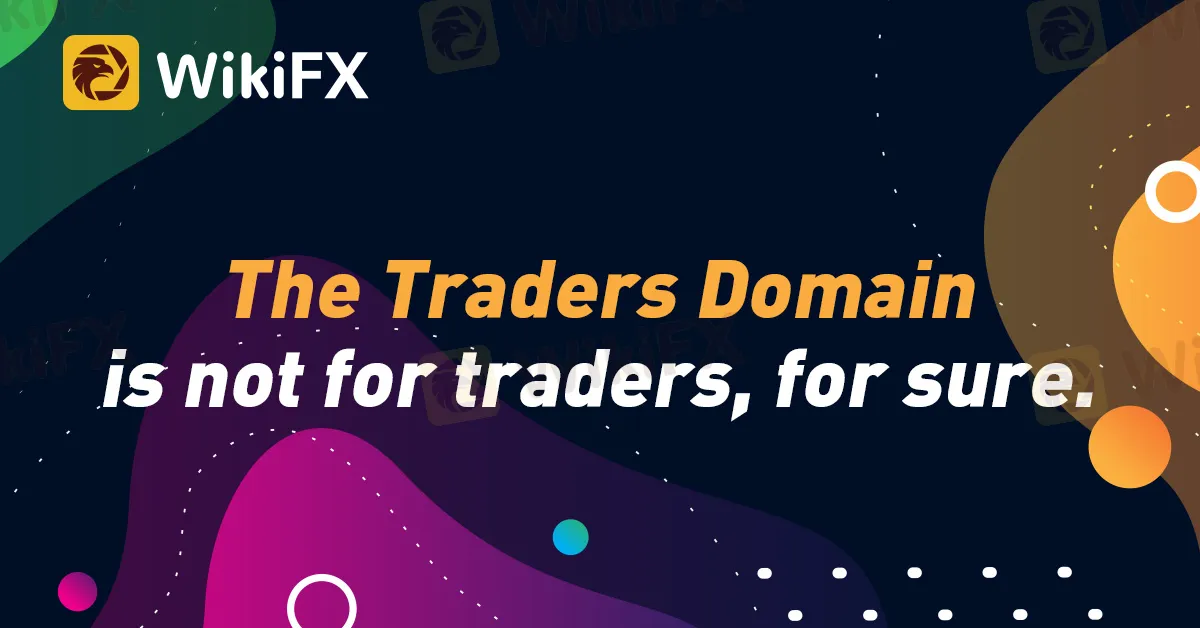
According to Youtuber “Coffeezilla”,Traders Domain is a forex broker that is suspected of being a Ponzi scheme involved in a $500 million fraud. The Traders Domain claimed that in three years, they made returns of $473,661.37. some reports said that a lot of people and celebrities who have money in this broker and they cannot withdraw their money and eventually lost all of their funds.
Recently, WikiFX has exposed this forex broker to the public. The broker is suspected of being a Ponzi scheme involved in a $500 million fraud. For more details, please check the article below.
Introduction
The Traders Domain, a forex broker known for its enticing promises of high returns, has come under scrutiny as allegations of a massive Ponzi scheme surface. With reports of $500 million in fraud, numerous victims, including celebrities, find themselves unable to withdraw their funds. This article delves into the details surrounding the Traders Domain Ponzi scheme, shedding light on its fraudulent operations and the key individuals involved.
The Traders Domain: A Ponzi Scheme
Traders Domain, an offshore broker registered in Saint Vincent, has been identified as an unregulated entity. While they claimed significant returns of $473,661.37 over three years, suspicions arose due to their inability to fulfill withdrawal requests. The absence of proper regulation and oversight raises serious concerns about the legitimacy of Traders Domain's operations. On WikiFX, this platform has been given a low score of 2.02/10.

Celebrities and Influencers Drawn In
According to Youtuber “Coffeezilla” who has followers of more than 2 million on YouTube, many victims fell prey to the Traders Domain Ponzi scheme after being enticed by celebrities and influencers who touted its potential rewards. Two TV celebrities, Pace Morby, and Jamil Damji, invested substantial amounts, with $950,000 and $1,000,000 respectively.

(Pace Morby)

(Jamil Damji)
These individuals were introduced to the scheme by Pete Vargas, who played a pivotal role in bringing victims into the fraudulent investment. Holton Buggs, Brandom Sims, and Pete Vargas identified as sponsors of the Ponzi scheme, deceived and defrauded unsuspecting victims. Holton Buggs shows off his luxurious life on the social platform, which lured the victims to get into the scam.

Where is the money heading?
Traders Domain claims not to provide services to residents of the United States. However, investigations reveal that customer funds gathered by Traders Domain were not directed to the broker itself but to a financial service company named SECAP Holdings LLC in the U.S., this company is owned by a man called Tin Quoc Tran, raising further questions about the flow and handling of funds within the scheme.


CFTC's Warning and Charges
The CFTC (Commodity Futures Trading Commission) claimed that The Traders Domain is not registered in CFTC. CFTC issues a red list for Traders Domain for quote “accepting funds from U.S. customers.” The Commodity Futures Trading Commission (CFTC) has taken action against Traders Domain, issuing a warning due to its failure to register with the CFTC and its acceptance of funds from U.S. customers. In a separate case, the CFTC charged several people and companies, including Tin Quoc Tran, in a $145 million Ponzi scheme. Tin Quoc Tran and several others in a $145 million Ponzi scheme. Tin Quoc Tran allegedly operated this fraudulent scheme from April 2020 until the present, accepting millions of dollars from numerous pool participants.



The Real Man Behind Traders Domain
However, what the tricky is that, according to YouTuber “Coffeezilla,” the mastermind behind the Traders Domain Ponzi scheme is a man called Ted Safranko. Although Traders Domain previously attributed its operations to other individuals, Coffeezilla alleges that Safranko is the true orchestrator of this elaborate fraud.


Follow-up
After being exposed, Ted has some new moves recently. See below.


Conclusion
The Traders Domain Ponzi scheme has wreaked havoc on unsuspecting investors, leaving them unable to retrieve their funds. With its unregulated status and involvement in a $500 million fraud, Traders Domain serves as a stark reminder of the risks associated with unverified investment opportunities. The actions taken by regulatory bodies, such as the CFTC, highlight the necessity for increased vigilance and awareness to protect investors from falling victim to such scams.

Read more
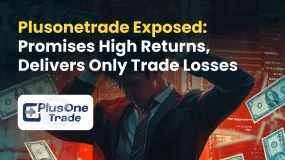
Plusonetrade Exposed: Promises High Returns, Delivers Only Trade Losses
Do you feel that Plusonetrade only makes you deposit with high-return promises? Does it deny withdrawals or allow you to take away just the principal amount? Have you been witnessing a lack of customer support to address your withdrawal queries at this forex broker? You have unfortunately trusted a fake broker that is operating without a valid license. The scams are obvious as traders are vehemently opposing the foul play committed by Plusonetrade on broker review platforms.
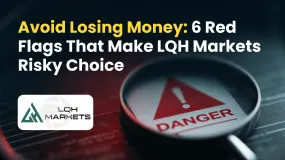
Avoid Losing Money: 6 Red Flags That Make LQH Markets Risky Choice
The only true way to protect your hard-earned money in the forex market is by staying informed and alert. With the growing number of fraudulent brokers, this dynamic and tempting market has become increasingly risky. Awareness is your best defense. This article serves as another important scam alert, to help you stay safe and avoid losing your money.
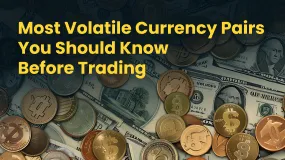
Most Volatile Currency Pairs You Should Know Before Trading
Do you think that trading in the most volatile currency pairs is a loss-making proposition? Maybe you are missing out on the profit waiting for you! Yes, you still need to be tactical and strategic when opening and closing positions. However, the increased possibility of dramatic price movements in currency pairs opens up avenues for higher profits while also exposing you to market risks. In this article, we will discuss the most volatile forex pairs worldwide. Read on!
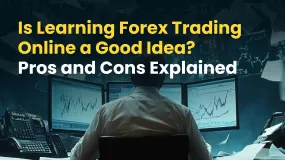
Is Learning Forex Trading Online a Good Idea? Pros and Cons Explained
Forex trading is becoming more popular around the world. To help with this, many brokers are offering forex education courses. Some are free, and some are paid. Some brokers even have special academies to teach trading. This trend is growing fast, but the big question is: Is learning forex online really helpful? And what are the risks that you may not know about? I
WikiFX Broker
Latest News
XS.com Broker Partnership Expands Liquidity with Centroid Integration
EC Markets: A Closer Look at Its Licenses
Housewife Scammed of RM68,242 in Online Investment Scam
ASIC Regulated Forex Brokers: Why Licensing Still Matters in 2025
From Charts to Profits: Unleashing the Power of Forex Trading Tools
FCA Publishes New Warning List! Check It Now to Stay Safe
Forex Hedging Strategies - Calming You Amid Market Chaos
LSEG Announces £1 Billion Share Buyback Program
Ultima Markets enters the UK and gains the FCA license
SEC Lawsuit Targets Real Estate Fraud Scheme by Joseph Nantomah
Rate Calc


